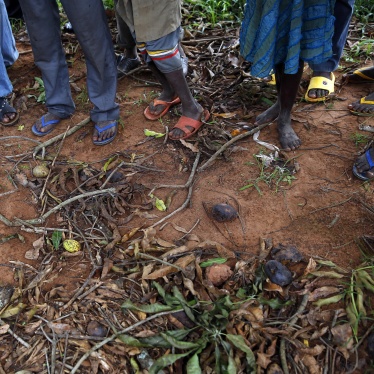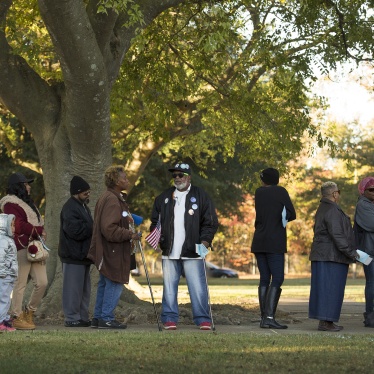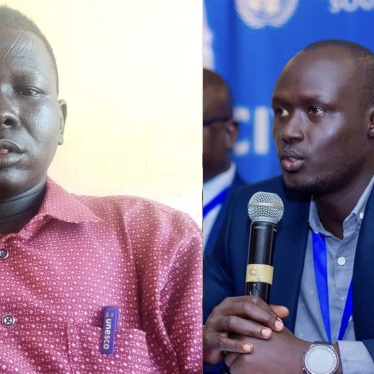Thank you for the floor, Madam Chair.
As the ICBL has noted before, the overall, long-term record of compliance with the Mine Ban Treaty by States Parties has been impressive. But there have also been instances of concern, and disturbingly, those instances have increased in recent years. Let me highlight some.
There was the first confirmed use of antipersonnel mines by a State Party, in Yemen in 2011-2012, and after some initial efforts to address the matter by the current government, it has not been in a position to do so during the ongoing turmoil. In addition, there are still serious use allegations against States Parties South Sudan and Sudan that have yet to be investigated.
The long-missed stockpile destruction deadlines for Belarus, Greece, and Ukraine all remain unmet.
On Article 3, it is more clear with each passing year that many States Parties are keeping mines under the Article 3 exception without ever using them for any of the permitted purposes; these are in essence stockpiled mines, not mines retained for training or development.
On Article 5, Ukraine will be in violation of the treaty as of 1 June 2016 for missing its clearance deadline without having requested an extension in time. Ethiopia was in the same situation last year. States Parties should speak up here today to encourage Ukraine to submit an extension request as soon as possible. To do so is not only a treaty requirement, but it is in Ukraine’s best interests in every way.
On Article 7, the compliance rate for the transparency reporting requirement continues to fall lower every year, now reaching a level that indicates widespread disregard for this legal obligation.
The creation of the Committee on Cooperative Compliance was an important response to this situation. We commend the Committee for the admirable job that it has done in looking at use allegations thus far. But, as the Committee has just reported, more work clearly needs to be done.
The allegations about use in South Sudan, Sudan, and Yemen are now all two to five years old, and begging for more timely resolution.
More recently, in Ukraine, there have been photos of victim-activated antipersonnel mines, both MON-series mines with victim-activated fuzes and PMN-2 mines, that have allegedly been captured from Ukrainian forces by rebels. We urge the Compliance Committee and Ukraine to look into this, to ensure that even limited, localized use of antipersonnel mines by government forces is not taking place. Ukraine has reported that all of its PMN-2 mines were destroyed.
We also continue to believe that it would be beneficial for the Committee to look not only at compliance concerns related to use, but other areas within its mandate as well, including stockpile destruction and mines retained for training.
In closing, it is vital to promote compliance with the norm being established by the Mine Ban Treaty: that there should not be any use of antipersonnel mines by any actor under any circumstance.
Thus far in 2016, at least two governments have continued using antipersonnel mines: Syria and Myanmar. Thus far in 2016, non-state armed groups have continued using antipersonnel mines (or victim-activated improvised explosive devices, which are prohibited by the Mine Ban Treaty) in at least six countries, with extensive use in Afghanistan and Iraq, significant use in Syria, Ukraine, and Yemen, and some use in Myanmar. States Parties should condemn any new use by non-state armed groups as well as government forces.
The significant use of antipersonnel mines by the Houthi rebels in Yemen raises the question of where the mines have come from. The Houthis have used three types of antipersonnel mines in large numbers, yet none are types ever reported by the government as being in Yemeni arsenals. Yemen should attempt to determine if there were extensive stocks that were possibly outside of the government’s control or knowledge and never reported.
Thank you.






